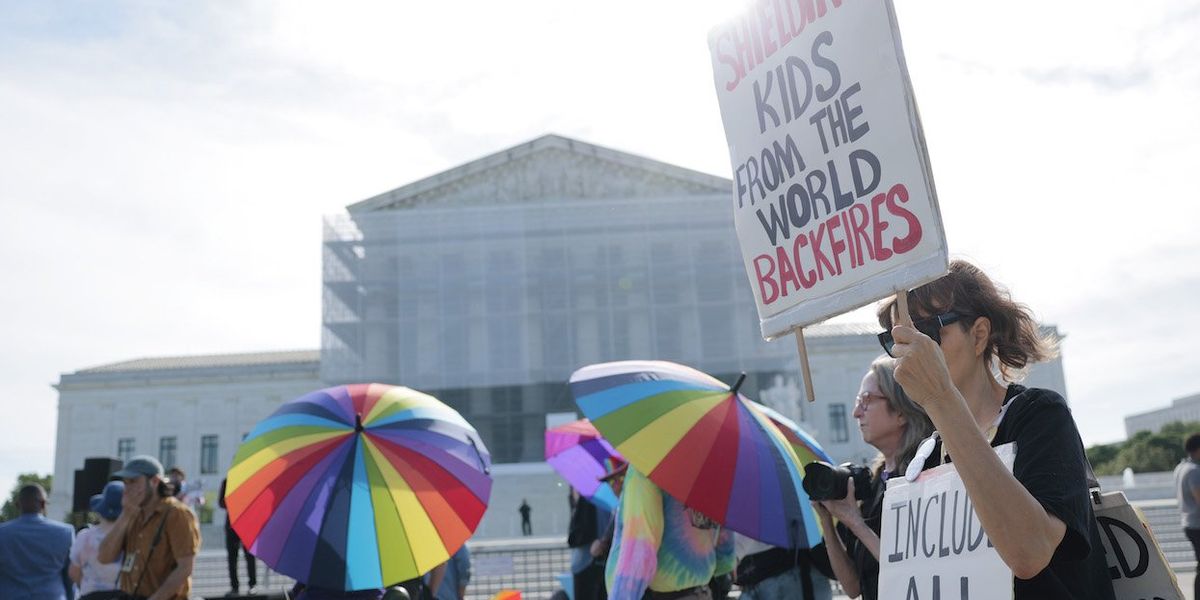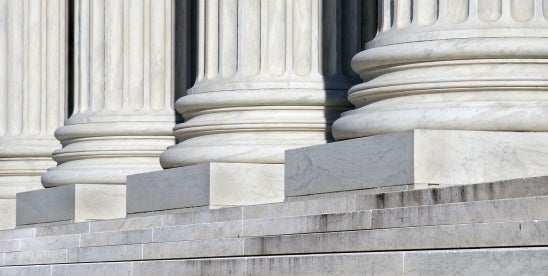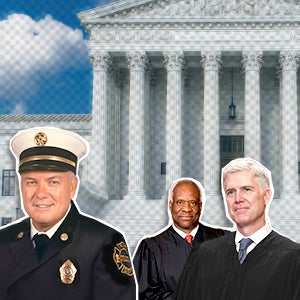
Two cases that the U.S. Supreme Court will rule on any day turn on book censorship and access to health care.
Keep up with the latest in LGBTQ+ news and politics. Sign up for The Advocate’s email newsletter.
This term, the court heard Mahmoud v. Taylor, in which religious parents in a Maryland school district seek an opt-opt for their children from LGBTQ-themed books, and Medina v. Planned Parenthood South Atlantic, which challenges South Carolina’s attempt to exclude Planned Parenthood clinics from its state Medicaid program.
Mahmoud v. Taylor was brought by parents of varying faiths who have children In the Montgomery County Public Schools. When several LGBTQ-themed books were adopted for the language arts curriculum in October 2022, parents were offered an opt-out. However, it became difficult to accommodate the number of opt-outs, according to the school district, and school officials worried that students who are part of the LGBTQ+ community or have family members who are would be subjected to social stigma and isolation. The opt-out policy also put the district at risk of noncompliance with antidiscrimination laws. So the district ended the policy in 2023.
Parents sued to get the policy reinstated. Both a U.S. district court and an appeals court denied their request, so they appealed to the Supreme Court. The named plaintiff is Tamer Mahmoud, a Muslim with three children in the district, but several other parents are involved. The named defendant is Thomas W. Taylor, the Montgomery County superintendent of schools.
When the high court heard arguments in the case in April, its conservative justices appeared sympathetic to the parents.
“The plaintiffs here are not asking the school to change its curriculum,” Justice Samuel Alito said. “They’re just saying, ‘Look, we want out.’ Why isn’t that feasible? What is the big deal about allowing them to opt out of this?” Another conservative justice, Brett Kavanaugh, said he was “mystified” by the end of the opt-out policy and didn’t understand why it isn’t feasible.
Liberal Justice Ketanji Brown Jackson, meanwhile, said questions of appropriate curriculum may be best solved at the local level. For her and the court’s other two liberals, Sonia Sotomayor and Elena Kagan, it appeared to be a question of where the line is drawn. Sotomayor mentioned that parents could object to a variety of other content on religious grounds. These could include divorce, magic, evolution, interfaith marriage, and women’s achievements outside of traditional roles, she said.
Indeed, if the parents convince the court that including LGBTQ+ books without an opt-out provision is a violation of religious freedom, “this would open the door for parents to opt-out children for any subject they find ‘objectionable’ and sends a message to LGBTQ+ students and their families that their experiences and stories aren’t equally important,” says a Human Rights Campaign fact sheet. “Additionally, this would create major hurdles for educators and administrators, who would have to find solutions for supervision and alternative options for opted-out students — exhausting educational resources.”
If the court rules that the absence of an opt-out policy doesn’t interfere with religious liberty, “this would allow both LGBTQ+ students and their peers to continue reaping the benefits of inclusive education,” HRC says.
Related: Key LGBTQ+ Supreme Court decisions to watch this term and what you need to know
The court also heard Medina v. Planned Parenthood South Atlantic in April. It involves executive orders issued in 2018 by South Carolina Gov. Henry McMaster, a Republican, that said Planned Parenthood clinics were not qualified providers under Medicaid, a joint federal-state program to cover health care for low-income people. Lower courts blocked those orders, so the state appealed to the Supreme Court.
During oral arguments, “the question before the Supreme Court was whether individuals can go to court at all to vindicate their right to choose their doctors under the Medicaid law,” NPR reports. John Bursch, the lawyer representing South Carolina, said there is no such right, because the word “right” doesn’t appear in the law that established Medicaid.
Justice Kagan could not agree less. “The state has an obligation to ensure that a person — I don’t even know how to say this — without saying ‘right’ — has the right to choose their doctor,” she said. She noted that the law had been amended to assure this choice.
Even conservative Justice Amy Coney Barrett expressed some skepticism about the state’s argument. If she couldn’t sue to get access to the provider she desired, “you’re depriving me of my ability … to see the provider of my choice,” she said.
While Planned Parenthood is usually associated with contraception and abortion, it provides many other services, often used by LGBTQ+ clients. These include cancer screenings and testing for sexually transmitted infections. In states that ban or restrict abortion, the provision of these other services is Planned Parenthood’s primary business, and if the court rules in favor of South Carolina, its clinics there would likely have to shut down, NPR notes. The same could happen in other states.
Also, a ruling in the state’s favor “would limit pathways for legal challenges against South Carolina’s attempt to remove Planned Parenthood or other providers from its program — compromising patients’ rights to choose their own healthcare providers and restricting access to essential healthcare for thousands of people,” according to HRC.
A ruling that patients could sue for access to the provider of their choice “would then send the case back down to the lower court to determine whether South Carolina has the authority to exclude Planned Parenthood clinics from its state Medicaid program,” HRC says.
Rulings could come as early as 10 a.m. Eastern Thursday.



